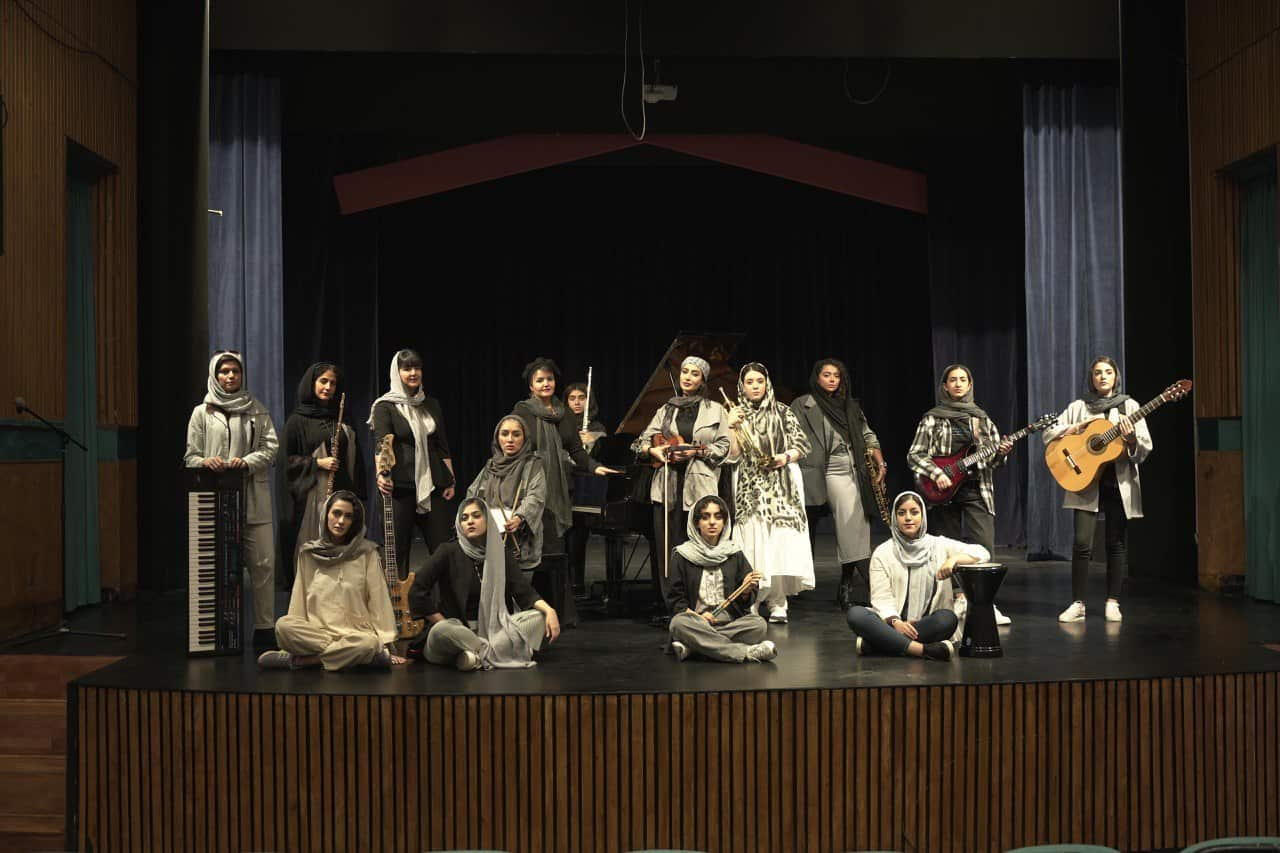Since the establishment of the Islamic Republic in Iran in 1979, women have faced significant restrictions on solo singing and public performances.
Bahar Ilchi founded the all-female pop band Polaris in 2009. Credit: Bahar Ilchi
According to The Guardian, these restrictions initially banned all forms of women’s singing but later evolved into a prohibition on solo performances in front of mixed-gender audiences.
With inspirations as diverse as Backstreet Boys and Metallica, Ilchi said she has always valued the “powerful energy” of group performances.

Bahar Ilchi with her band Polaris. Credit: Bahar Ilchi
After three and a half years of rehearsals, rejections and bureaucracy, Polaris finally gained permission from the the Ministry of Culture and Islamic Guidance to perform on stage.
“When that permission finally came through, I screamed with joy.”
A band like no other
Polaris has since performed more than 50 times at major venues in Tehran like Vahdat Hall and the Niavaran Cultural Center, and Iran’s Fajr International Music Festival.
Every stage we stepped onto was a statement.
Bahar Ilchi
Currently, the band features four singers and a full ensemble of instruments — bass guitar, trumpet, violin, saxophone, flute, keyboard, drums, electric guitar and tombak (goblet drum).

Polaris is an all-female pop band whose members play instruments including guitar, drums and violin. Credit: Polaris Band
“I wasn’t concerned about the numbers,” Ilchi said. “What mattered was including instruments people rarely see women play.”
Polaris has released more than 20 original Persian singles, but due to Iranian laws, they are not permitted to publish their music online or distribute it publicly.
Another significant hurdle for her band, she said, has been the constant turnover of band members due to migration.
Many members kept leaving the band as they migrated in search of greater freedom and the chance to perform without restrictions, which was very difficult for me at first.
Bahar Ilchi
“I’m proud that Polaris can be that opportunity for them.”
Women-only concerts
Ilchi explained that performing exclusively for women also holds its own rewards.

Polaris is only permitted to perform for female audiences in Iran. Credit: Polaris Band
“Women are incredibly attentive to every detail of our performance and always provide thoughtful, meaningful feedback,” Ilchi shared.
The group will kick off its Australian tour with shows in Brisbane and Melbourne (Dandenong).
‘Raising their voices’ for Iranian women
Azadeh Davachi, an Iranian-Australian researcher, writer and women’s rights activist, views Polaris’s international performances as a groundbreaking moment for Iranian women.

Azadeh Davachi. Credit: Azadeh Davachi
“This is a huge step forward, not just for women in Iran, but for women everywhere who are standing up for themselves — especially Gen Z and Millennials,” she said.
Davachi said the women are challenging stereotypes by stepping onto global stages.
Quoting one of her favourite Iranian scholars, Farzaneh Milani, Davachi said: “The more a society restricts women, the more creative they become.”
Art, in its purest form, is a peaceful act of civil resistance.
Azadeh Davachi
“I believe we’ve reached a tipping point where women will become the leading voices in protest art. After all, they’re the ones most oppressed, and their creative resistance is powerful.”
Bringing Polaris to Australia
Nasiri said she always looks for ways to bridge cultural gaps and elevate Iranian female talent globally.

Natasha Nasiri. Credit: Natasha Nasiri
Captivated by the band’s energy and professionalism during a trip to Iran, she questioned why such talent should remain confined.
“It was a hurdle because people who had never seen them live couldn’t find any footage, as they’re not allowed to share their performances. But it was also a bonus because it sparked people’s curiosity — they wanted to see what Polaris was all about.”
“This concert is not just about music — it’s about showcasing the talents of women who have been restricted for so long. This is about encouraging other women to follow their dreams,” she said.

